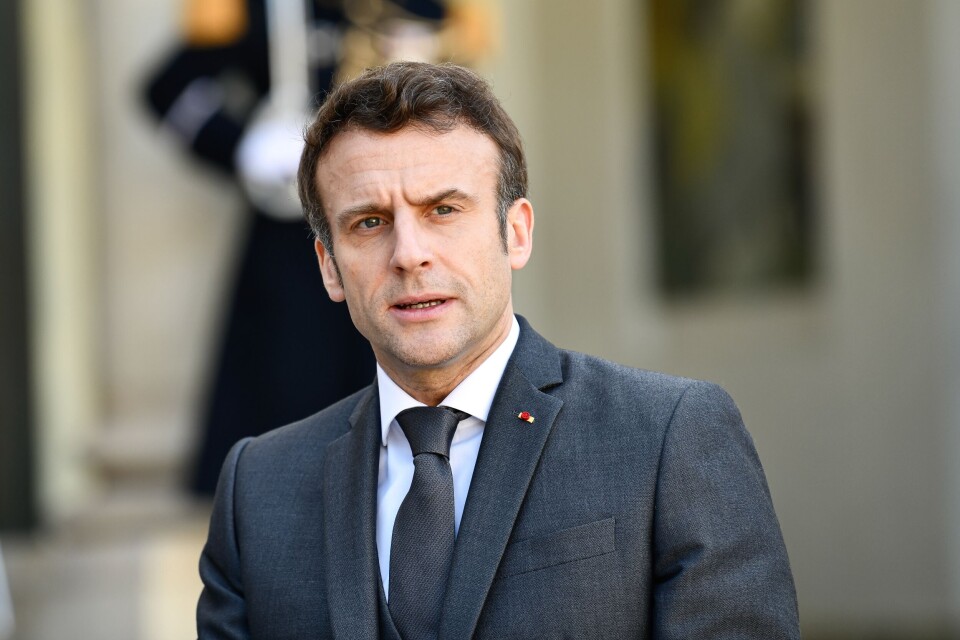-
VPN providers may leave France under pressure from Canal+
The broadcaster is demanding courts order Virtual Private Networks to block access to illegal streams
-
Forgetting luggage on French transport can land you a hefty fine
Fines vary from €72 to €1,500 depending on the level of offence, with 360 items left per week
-
Death of Emile, 2: French prosecutor gives more details after grandparents released
There are several reasons that a third party is suspected of involvement in Emile’s death
Power shift in France: President Macron needs MPs to compromise
We ask political experts what went wrong for Macron in the legislative elections and how he can govern without an absolute majority

France is facing a crise politique, claimed headlines after June’s MP elections in which President Macron’s coalition fell significantly short of winning the 289 seats it needs for an absolute majority.
Read more:Macron misses out on absolute majority in French legislative elections
The president has enjoyed a majority for the last five years but his Ensemble! alliance won just 245 seats, meaning bills will need opposition support to pass through the Assemblée nationale.
Chloé Morin, analyst at the Fondation Jean-Jaurés, said: “Power has moved from the Elysée to the Assemblée.”
Read more: France did not vote for political ‘ratatouille’: opposition to Macron
Many of Macron’s candidates lost
Mr Macron has pledged confidence in prime minister Elisabeth Borne and asked her to conduct consultations with parliamentary groups to form a “government of action” for early July.
Standing most strongly in his way are the left-wing coalition Nupes (131 seats) and Marine Le Pen’s far-right Rassemblement National (RN), which grew from eight MPs in 2017 to 89 – a record high for a far-right party in France.
Her party gained 100% of MPs in the Haute-Marne, Haute-Saône, Aude and Pyrénées-Orientales.
In Vaucluse, RN won in four out of five zones and in the Var it won in seven out of eight.
It means Mr Macron, who won a second term in April – only the third president to do so – may find himself stymied.
Division and debate expected
Janine Mossuz-Lavau, political science lecturer at Sciences Po CEVIPOF, said: “This is unprecedented for a sitting president and raises questions as to which parties he will look to for alliances.”
She said parties will be torn as MPs debate whether or not to align with him.
Spending power measures, the age for retirement, nuclear and potential new Covid measures are all set to divide.
Macron wants compromise not coalition
In a televised speech on June 22, the president ruled out a gouvernement d’union nationale, in which MPs from across the political spectrum are invited to form a government.
He also ruled out a coalition with another party.
Instead, he said MPs would need to “build compromises” and asked the other groups and parties to show their views on different policies.
Read more: ‘We must learn to govern differently’: Key points of Macron’s TV talk
He said there were “deep divisions” in France that are reflected in the composition of the House and acknowledged the low voter turnout [46%] in the legislatives, saying it “cannot be ignored”.
“No political force can today make laws alone, as in most Western democracies,” he said.
Several MPs (right and left) have since said they will study upcoming laws to see if they can back them, saying blocking parliament is counterproductive.
How did it go wrong for the president?
Benjamin Morel, a lecturer at Assas Paris II law university, suggested that his lack of a grassroots party was an issue.
“What used to be Mr Macron’s strength turned against him during these legislative elections,” he said.
“Mr Macron has always seen a party as something useless but it is useful. Particularly when you need to root yourself within territories.”
Electorate backed extreme parties
Florent Parmentier, general secretary at Sciences Po CEVIPOF political centre, said that the results were also in part fuelled by “a rejection” of Mr Macron’s personality with many in France finding him arrogant and too aloof.
He said the president also over-relied on the front républicain – the idea that unaligned voters in France will back moderate candidates to keep out more extreme parties, something that did not happen with the legislatives.
Focus on Ukraine not elections
Mr Macron was also barely present during the build-up to the elections, focusing his attention on foreign affairs, including his first visit to Ukraine since Russia invaded on February 24.
This allowed space for the de facto face of Nupes, Jean-Luc Mélenchon, to push his way into the spotlight.
If the president faces gridlock, it could push him to dissolve parliament and try again to win an absolute majority, said Ms Mossuz-Lavau and Mr Parmentier.
Related articles
French politics: President Macron is in office but he is not in power
Will Macron dissolve parliament over MP loses? Two experts give views
French election fallout: Macron refuses to accept PM’s resignation
























